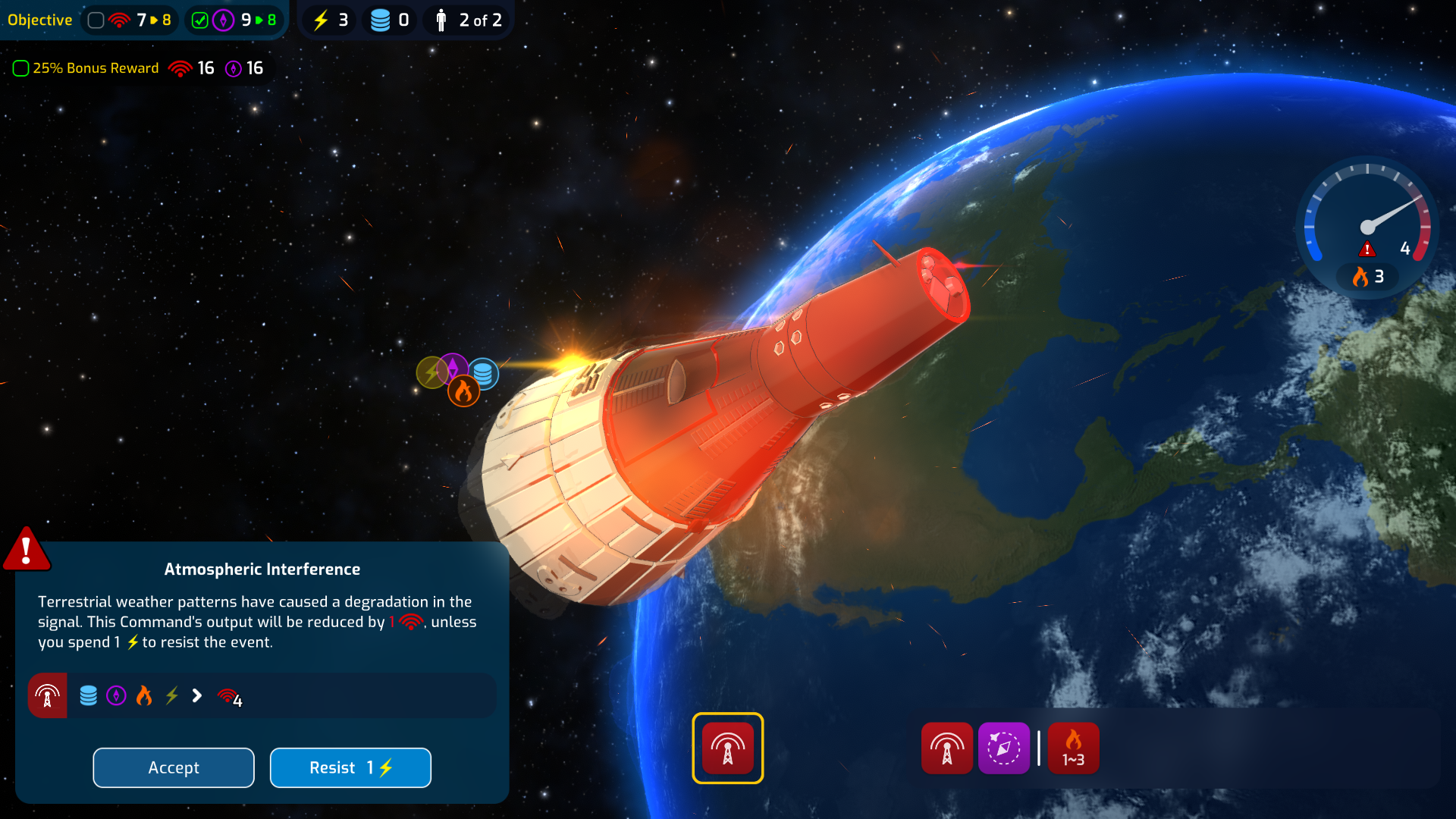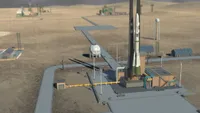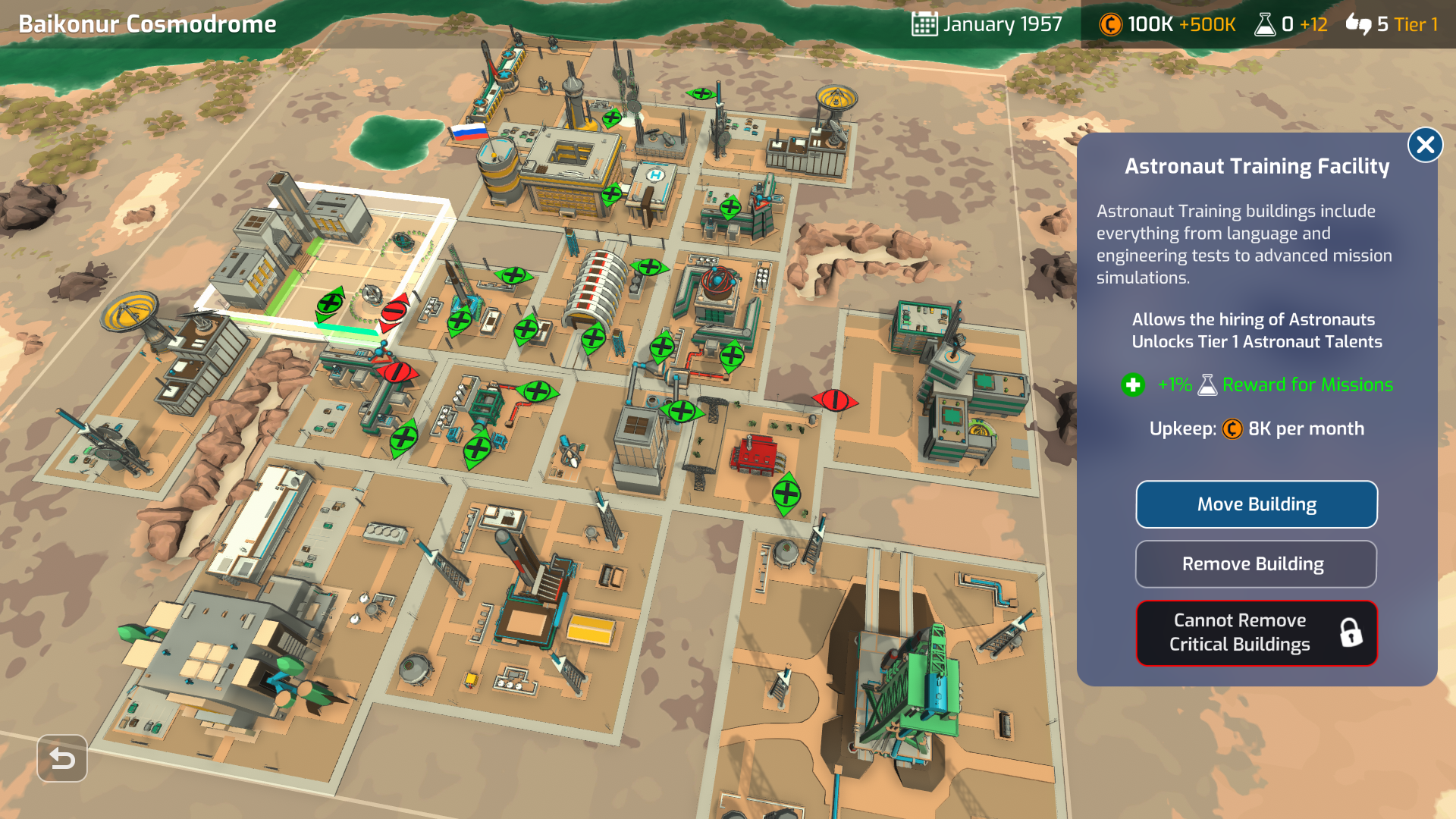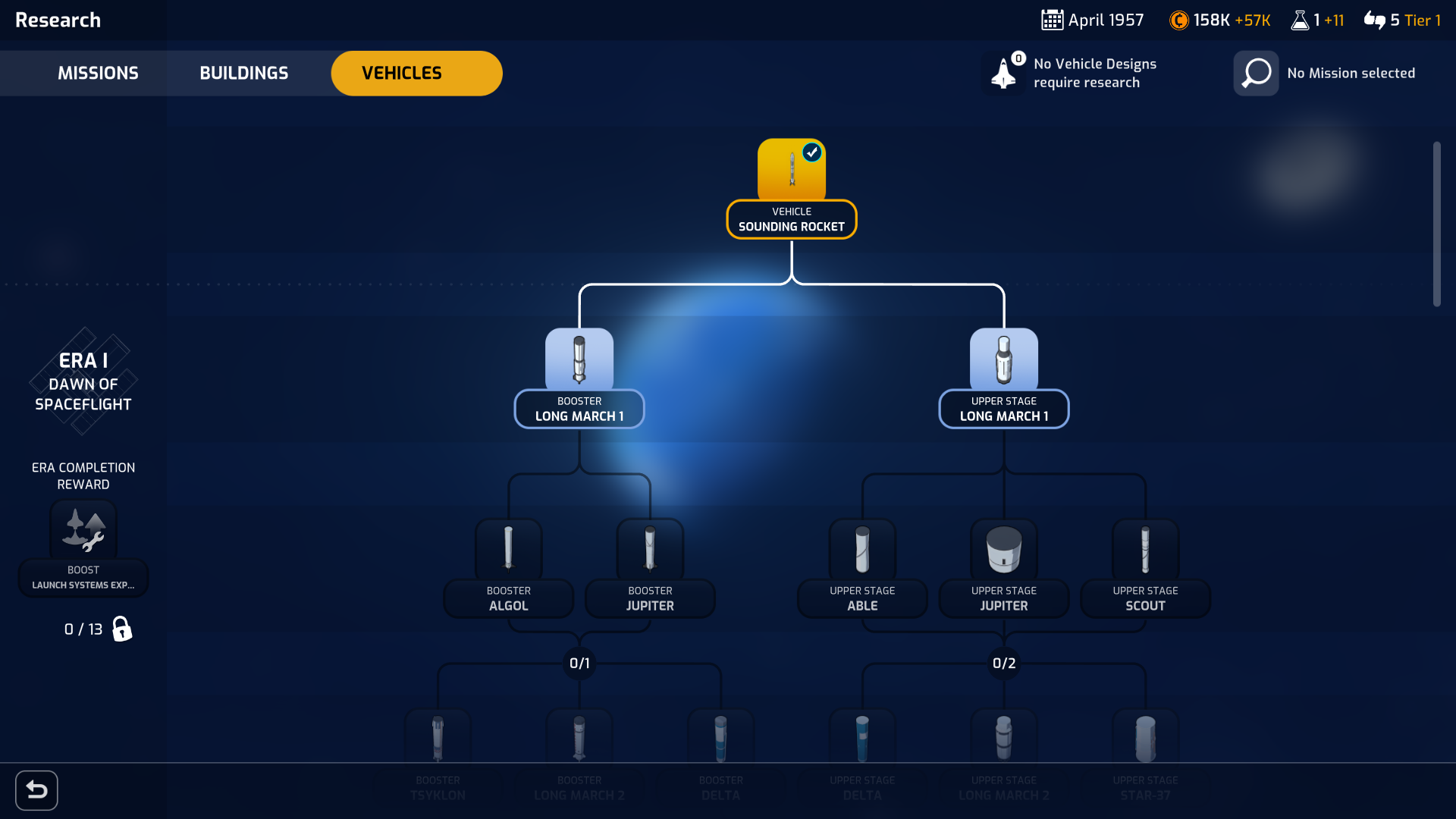'Mars Horizon' review: Design rockets, run missions and compete for glory in this addictive space adventure

Breaking space news, the latest updates on rocket launches, skywatching events and more!
You are now subscribed
Your newsletter sign-up was successful
Want to add more newsletters?

Delivered daily
Daily Newsletter
Breaking space news, the latest updates on rocket launches, skywatching events and more!

Once a month
Watch This Space
Sign up to our monthly entertainment newsletter to keep up with all our coverage of the latest sci-fi and space movies, tv shows, games and books.

Once a week
Night Sky This Week
Discover this week's must-see night sky events, moon phases, and stunning astrophotos. Sign up for our skywatching newsletter and explore the universe with us!

Twice a month
Strange New Words
Space.com's Sci-Fi Reader's Club. Read a sci-fi short story every month and join a virtual community of fellow science fiction fans!
I'm a sucker for skill trees in gaming, which means my favorite part of the new "Mars Horizon" game is not only its space-based skill tree but its rocket tree, where you create parts for space missions.
In the space simulator game from Auroch Digital, you manage a space agency of your choice. You start in the year 1957, with five space agencies competing for glory and "milestone" missions, such as the first satellite, the first human in space and the first moon flyby. I chose NASA. The game isn't quite historically accurate, in that only two countries (the United States and the Soviet Union) were earnestly in space from the beginning, but overall, it does a decent job of showing how space exploration progressed.
As you unlock milestones and complete missions, you find yourself waging a PR battle with the other space agencies and also with your own funders. If you do well, the other agencies will give you a few Easter eggs (I got free Venus flyby development tech), and your funders will shower you with money. Do poorly, and you'll get less money and a lot of nasty newspaper headlines.
Related: The latest space games news
Mars Horizon $19.99 at Greenmangaming.
Want to fly to the moon? Win the space race with your own space agency in the space simulator game Mars Horizon from Auroch Digital.
Skills in the game replicate what the early space agencies wanted to do, such as perform the first spacewalk or create the space shuttle to reduce overall mission costs. But it was the rockets that really held my attention: You research a set of real-life upper stages, lower stages and booster stages to create the combinations you need. Smart players will plan and test out their rockets in uncrewed missions before using them in crewed missions. As a novice, I didn't think that far in my first game — but I'm definitely going to research it closely in future play-throughs.
As you progress, you'll quickly learn that you can't satisfy all interest groups at the same time, which is exactly what NASA and other agencies have to contend with in real life. My favorite example was when my Red Planet orbiter discovered the infamous (and debunked) "Face on Mars" rock formation. Should I encourage UFO speculation and get more money and glory, or play it down and make the scientists unhappy? I needed the funds to create a human moon landing, so I decided to — irresponsibly — say it must be an alien formation. Ratings soared. But I felt guilty.
For hours, I built up my space agency's skills, the number of boosters it could use and associated buildings, such as mission control, a neutral buoyancy laboratory for astronauts to do spacewalk training and numerous rocket pads. The race to a human moon landing was tight between me (NASA) and China, but unfortunately, I failed at the last minute by rushing my spacecraft development. My three astronauts died in Earth orbit, and my expensive Saturn V booster and Apollo spacecraft had to be rebuilt, more carefully the next time.
Breaking space news, the latest updates on rocket launches, skywatching events and more!
And this is where "Mars Horizon" really shines in offering a glimpse of space agency management. You'll be debating whether to launch in poorer "windows," when conditions aren't optimal, to beat other space agencies to milestones. You'll have to risk spending lots of the in-game currency on rocket development, only to sometimes see the mission fail due to your own incompetence or to matters outside your control. You do gain credit from these experiences, but failures sting nonetheless, especially if they involve fictional astronauts.
The game also simulates the complexity of Earth orbit maneuvers, translunar injection, re-entry and other key milestones of a mission. Using parameters such as experiments, power and astronaut time, you try to produce quantities of fuel, communications capabilities or similar items to satisfy mission requirements. You also will need to keep your spacecraft safe through bleeding off heat during a re-entry, for example. While you do have the choice of "auto-completing" these milestones and skipping them, beware; technically, it was the auto-completion option that killed my Apollo astronauts, so you can't always trust the game "computer brain" to take over.
As you progress out of the early Space Age, you unlock even more benefits. The game requires many hours to complete, but I got far enough to start flying the space shuttle and begin attempting a human Mars landing in earnest. You begin with a "pathetic," or 0%, chance of achieving a landing on Mars. But as you complete related missions, such as long-duration space station work, or Martian flybys and landings, you'll find yourself moving even closer to landing on Mars.
The game includes elements of the SimCity series in terms of building and managing a facility, while also echoing some of the old-school games from the 1990s concerning space mission management. (Anyone else remember the MS-DOS "Buzz Aldrin's Race Into Space" from 1993? Anyone?!) But seriously, this is an addictive game. My space geek heart had me staying up late trying to move just one step closer to Mars, while my brain told me I really should go to sleep so I could do my work properly in the morning. I stopped playing long enough to write this review, but I'm already itching to return to replicating space exploration in this game.
Follow Elizabeth Howell on Twitter @howellspace. Follow us on Twitter @Spacedotcom and on Facebook.

Elizabeth Howell (she/her), Ph.D., was a staff writer in the spaceflight channel between 2022 and 2024 specializing in Canadian space news. She was contributing writer for Space.com for 10 years from 2012 to 2024. Elizabeth's reporting includes multiple exclusives with the White House, leading world coverage about a lost-and-found space tomato on the International Space Station, witnessing five human spaceflight launches on two continents, flying parabolic, working inside a spacesuit, and participating in a simulated Mars mission. Her latest book, "Why Am I Taller?" (ECW Press, 2022) is co-written with astronaut Dave Williams.



